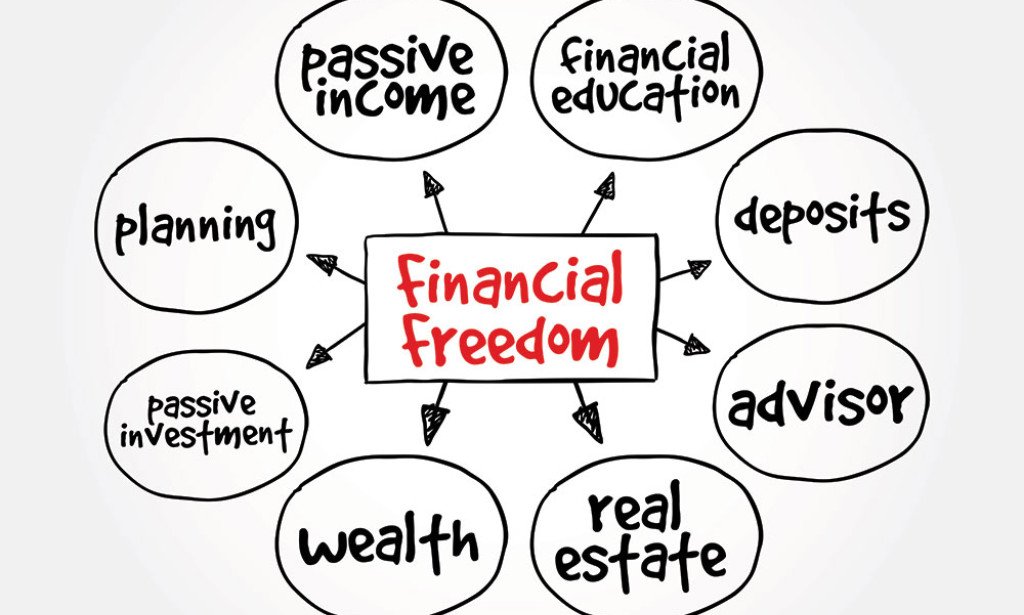Introduction
Most people want to be financially independent, but not everyone knows how to get there. Having enough money to live comfortably without having to worry about money is the definition of financial independence. These ten tactics can assist you in taking charge of your finances and paving the path to a secure financial future, regardless of where you are in your financial journey or how you would like to better your current situation.

1. Establish and adhere to a budget
Making a budget is one of the most important first steps on the path to financial independence. You can stay within your means by tracking your income and expenses with the use of a budget. You can spot wasteful spending and put more money towards investments and savings by adhering to a budget.
2. Establish an Emergency Fund
An emergency fund serves as a safety net for your finances, shielding you from unforeseen costs like auto or medical repairs. Save enough money to cover your living expenses for at least three or six months. Having this safety net helps you deal with crises without incurring debt.
3. Pay Off Debt
One of the biggest obstacles to financial freedom can be debt. Make paying off credit card bills and other high-interest debt your first priority. To deal with your debts in an organised and effective manner, think about employing the debt avalanche or snowball techniques.
4. Make an Investment in Your Future
One essential element of accumulating wealth is investing. To begin with, fund retirement accounts such as an IRA or 401(k). To reduce risk and increase returns, spread your assets among a variety of asset classes, including stocks, bonds, and real estate.
5. Make Do With Less Than You Can
Spending less than you make and avoiding lifestyle inflation are two aspects of living below your means. This routine enables you to invest more, save more, and accomplish your financial objectives more quickly. Making sacrifices might be necessary, but the long-term advantages.
6. Raise Your Salary
Your journey to financial freedom might be sped up by looking for methods to raise your income. Think about asking for a raise, starting a side business, or investing in training and skills that will open doors to higher-paying jobs.
7. Set Up Auto-Deposits
By automating your savings, you may make sure that some of your income is invested or saved before you have an opportunity to spend it. Saving money is easier and more reliable when you use this method.
8. Develop Your Financial Knowledge
Making wise judgements requires having a solid understanding of finance. To increase your knowledge of investment, wealth management, and personal finance, read books, go to workshops, and read credible financial blogs.
9. Establish Budgetary Objectives
You may stay on course by setting SMART (specific, measurable, attainable, relevant, and time-bound) financial goals. Having objectives helps you stay focused and disciplined, whether yours is paying off debt, saving for a down payment on a house, or retiring early.
10. Make a retirement plan
For long-term financial security, retirement planning is crucial. As early as feasible, begin saving for retirement and, if offered, take advantage of employment contributions in retirement plans. Make sure you're on track to reach your retirement goals by reviewing and adjusting your plan on a regular basis.

You must be logged in to post a comment.